On October 7th, 2023, Hamas attacked Israel from the Gaza Strip, which it has been governing since 2007. The details of the attack are horrific, and I won’t describe them here. Suffice to say that they are in line with the acts of the Nazi regime and ISIS.
We know from the past that Google search volume tells an interesting story about major world events, so here are a few graphs about that attack, through the lens of Google Search Trends.
First, the attack has caused major trauma to Israelis, as visible in this graph of search volume for anxiety and for depression. The latter serves as a comparator. As the graph shows, searches for anxiety spiked on October 7th and were high for around a month after then. As somewhat expected, searches for depression were attenuated for the same period, which is perhaps similar to an effect we saw at the start of the COVID19 pandemic.
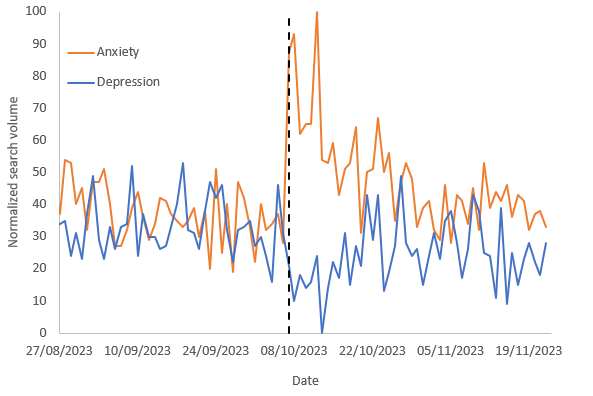
In Israel, interest in news spiked at the start of the war but has since gone down significantly. Similarly, queries about Hamas and the Gaza Strip spiked and then went down, though not to baseline (yet).

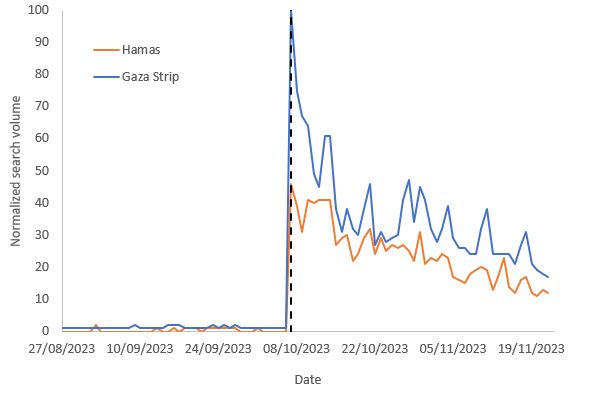
Worldwide the trend is as expected from the literature, which shows that a half-life of a few days for major news events.
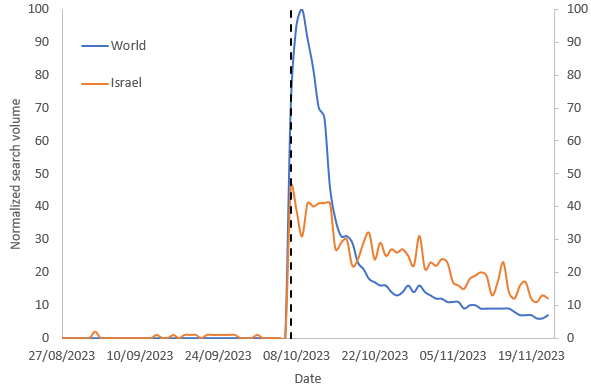
What about effects of this war on the world at large? Here’s interest in the phrase “Free Palestine”. Note how it is almost nonexistent until October 9th but then, just two days after Hamas’ atrocities, it spikes. Somewhat similar to interest in Hamas it’s decaying quickly, but is not yet back to baseline.
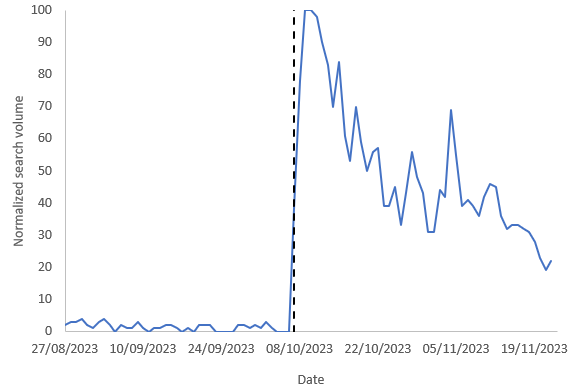
Perhaps it’s more about fashion than about substance? Let’s check the USA. Here we see a strong political effect of these queries, i.e., more democrat states are more likely to be interested in Free Palestine. The voting share for Biden-Harris in the 2020 Presidential elections explains almost 70% of the variance. This is interesting because, of course, President Biden is a democrat and he took a strong pro-Israel stance in this war.
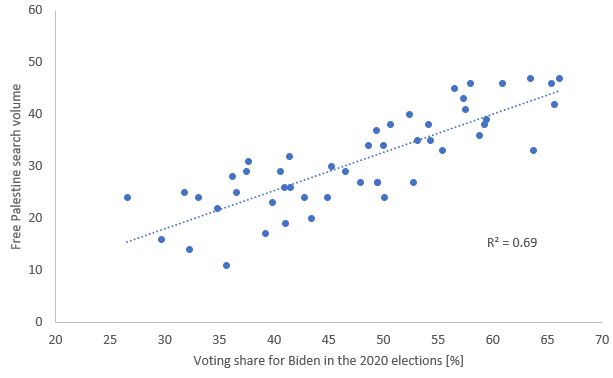
As Greta Thunberg noticed, Free Palestine is highly correlated with another political issue – climate change. The correlation explains more than 60% of the variance! The outliers on the top (meaning, more interest in climate change than expected according to the interest in Free Palestine) are mostly states that are likely to be affected by climate change such as Hawaii, Vermont and Alaska. Outliers on the other side are (in my opinion) Democrat states with large universities, but this warrants more careful research.

My prediction is that interest in Hamas and this war will soon wane as the world moves to the next crisis. In Israel, expect a spike in pregnancy queries in a few months.
